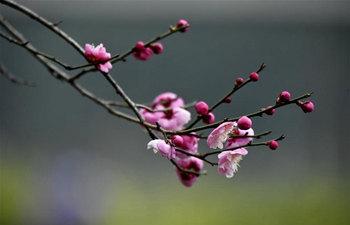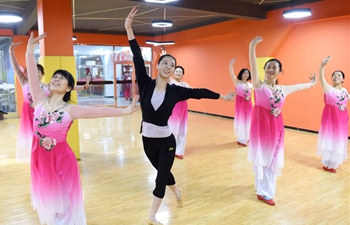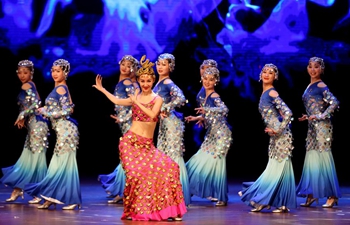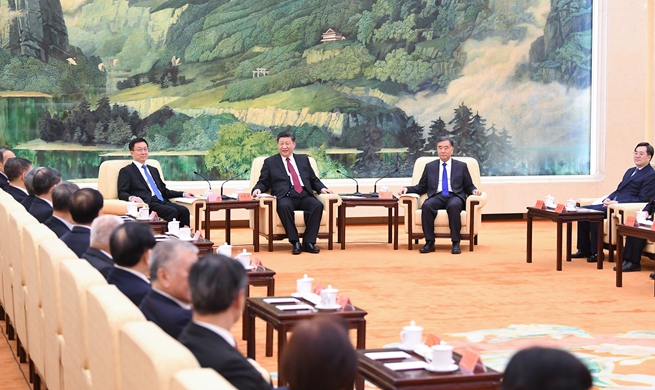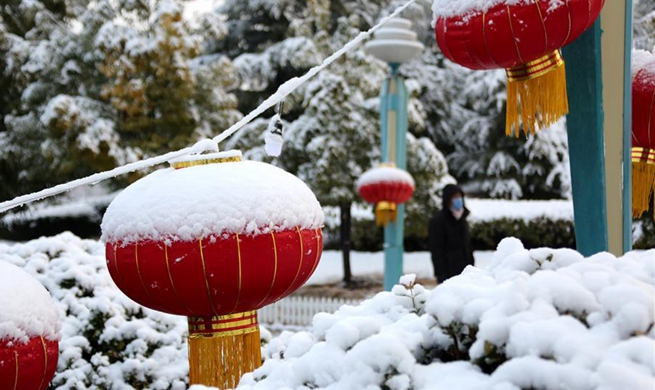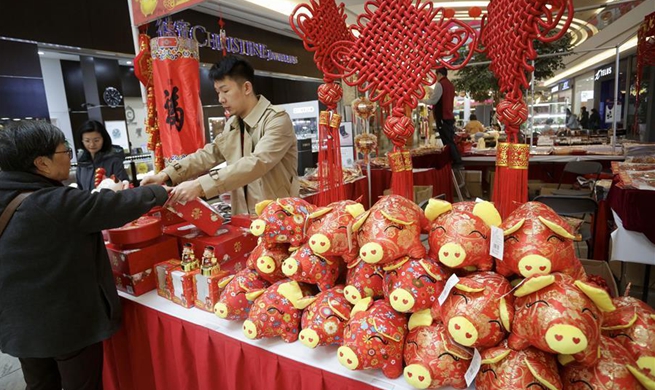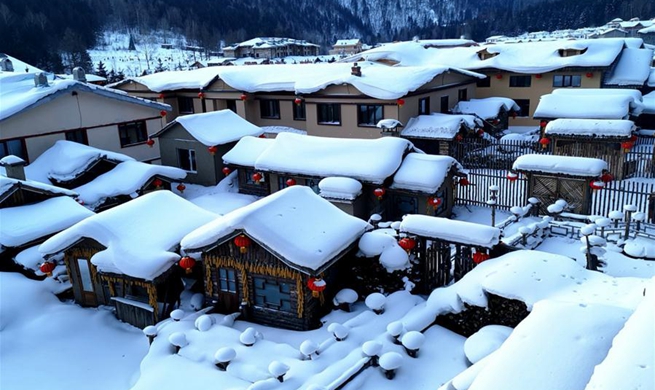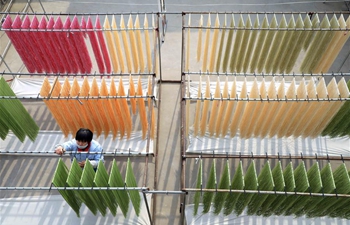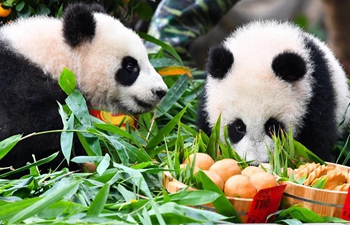BEIJING, Jan. 31 (Xinhua) -- Only four days until Chinese lunar new year's eve! Chinese people are busy shopping and preparing for new year banquets. With a greater variety of imported foods flooding into China, the Lunar New Year is now beginning to taste more exotic than ever.
Liu Miao, a white collar worker in Shanghai, said her childhood memories of New Year eats consist of fried pork, rice cakes, dried fruits and candy. But now, New Year feasts have become much more elaborate with shrimp from South America, fresh fruit from Southeast Asia and nuts from the United States, she said.
"I buy imported food from supermarkets and online," she said, adding that her parents are learning about how to by foreign products from e-commerce platforms.
In the city of Yiwu, eastern China's Zhejiang Province, an imported goods fair opened recently to attract New Year shoppers. There are more than 90,000 types of goods from over 100 countries and regions, which were brought into China either by the China-Europe trains or cross-border e-commerce platforms.
According to the international trade center of Yiwu, where the fair is located, foreign snacks, red wine and kitchenware are the most popular commodities. The annual fair expects to see double-digit growth in the sales of food and wine.
Earlier this month, a Greece national pavilion with over 50 types of goods launched in Shanghai's free trade zone (FTZ). Irini Karipidis, curator of the pavilion, said Chinese consumers are familiar with Greek olive oil, red wine, honey and flour, and the pavilion looks to introduce more quality Greek products to Chinese buyers.
Some products in the pavilion will be selected to join the second China International Import Expo (CIIE), according to Karipidis.
As the world's first import-themed national-level expo, the first CIIE was held in Shanghai in November 2018 and attracted 3,617 foreign exhibitors and more than 400,000 buyers from home and abroad.
In Suifenhe city along China's border with Russia in the northeastern Heilongjiang Province, Russian foods are in high demand with the approach of the Spring Festival. Russian flour is used by many to make New Year's dumplings, and vodka is becoming a part of the New Year's dinner table for many local residents.
Guo Yan has been selling Russian seafood in the city. She said sales ahead of this year's Spring Festival are 50 percent higher than that of last year.
Russian Businessman Karasev Pavel is busy ordering food products from Russian companies, and his Chinese partners will sell these products in Suifenhe's market. Pavel has sold 300 tonnes of Russian candy in China over the last year.
Statistics shows bilateral trade between China and Russia exceeded a record high of 100 billion U. S. dollars in 2018.




